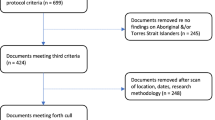Abstract
Inner-city school systems serving marginalized populations around the world are hindered by undemocratic and anti-public, political forces given global neoliberalism. This paper highlights a three-year case study of community organizers’ efforts to resist such forces and increase school access, equity, and local control in Detroit, MI (USA). Authors emphasize how the leadership of African American mother organizers was particularly instrumental to positive change. Literature on educational activism, leadership, and community organizing help frame the organizational and political value of the organizers’ efforts. In-depth interview, observation, and artifact data further reveal how the activist-mother-organizers, motivated by their spiritual beliefs and liberatory aims, guided effective educational reform campaigns to oppose school closure and cultivated critical hope among their fellow organizers through a process the authors name as “spiriting urban educational justice.” Spiriting urban educational justice involves enacting border crossing and boundary spanning activities to navigate placed-based politics and seek educational equity with spiritual clarity and drive. Authors discuss how school and district leaders can learn from this process and collaborate with activist-organizers who serve as spiriters of justice to improve urban schools.
Similar content being viewed by others
Notes
All personal and organization names are pseudonyms to maintain anonymity and blind review.
The website link is not included in this version to maintain blind review.
While community organizing is a form of activism in that organizers work for social justice and collective uplift, we recognize that not all activism involves organizing. Activists can contribute to a justice movement individually without enacting the distinct training and skills that organizing requires via mobilizing others and coalition building (Warren & Mapp, 2011).
We withheld citations here to protect the participants’ anonymity.
The work of various subpopulations is crucial to the CBO, such as African American, Latinx, Arab American, and white parents and teens, plus non-profit leaders, non-parent community members, and other allies.
Within education, participatory action research typically involves academics and/or school practitioners collaborating with community members to democratically design and implement research that addresses immediate problems affecting a community. They then draw upon their findings to take some immediate, solution-oriented action (e.g., See Guishard et al., 2005).
The Republican Party of the U.S. is the more socially and economically conservative party of the nation’s two largest and most prominent political parties. Party leaders are generally supportive of neoliberal agendas.
References
Alinsky, S. (1989). Rules for radicals. Vintage Books.
Alston, J. A. (2005). Tempered radicals and servant leaders: Black females persevering in the superintendency. Educational Administration Quarterly, 41(4), 675–688.
Anzaldúa, G. (2007). Borderlands la frontera: The new mestiza (3rd ed.). San Francisco, CA: Aunt Lute Books.
Barnes, S. L. (2004). Priestly and prophetic influences on black church social services. Social Problems, 51, 202–221.
Baxter, P., & Jack, S. (2008). Qualitative case study methodology: Study design and implementation for novice researchers. The Qualitative Report, 13(4), 544–559. Retrieved from http://www.nova.edu/ssss/QR/QR13-4/baxter.pdf
Bertrand, M., & Rodela, K. C. (2018). A framework for rethinking educational leadership in the margins: Implications for social justice leadership preparation. Journal of Research on Leadership Education, 13(1), 10–37.
Binelli, M. (2017, September 5). Michigan gambled on charter schools. Its children lost. The New York Times. Retrieved from https://www.nytimes.com/2017/09/05/magazine/michigan-gambled-on-charter-schools-its-children-lost.html
Collins, P. H. (1990). Black feminist thought: Knowledge, consciousness, and the politics of empowerment. Routledge.
Collins, P. H. (1994). Shifting the center: race, class, and feminist theorizing about motherhood. In E. N. Glenn, G. Chang, & L. R. Forcey (Eds.), Mothering: Ideology, experience, and agency. Routledge.
Cooper, C. W. (2007). School choice as “motherwork”: Valuing African American women’s educational advocacy and resistance. International Journal of Qualitative Studies in Education, 20(5), 491–512.
Cooper, C. W. (2009). Parent involvement, African American mothers, and the politics of educational care. Equity and Excellence in Education, 42(4), 379–394.
Copeland, M. S. (2012). The (black) Jesus of Detroit. In G. Yancy (Ed.), Christology and whiteness: What would Jesus do? (pp. 180–195). Routledge.
Copeland, M. S. (2019). Turning theology: A proposal. Theological Studies, 80(4), 753–773.
Dantley, M., & Tillman, L. C. (2006). Social justice and moral transformative leadership. In C. Marshall & M. Oliva (Eds.), Leadership for social justice: Making revolutions in education (pp. 16–30). Pearson Education.
De Lissovoy, N. (2015). Education and emancipation in the neoliberal era: being, teaching, and power. Palgrave Macmillan.
Detroit Historical Society. (2019). Encyclopedia of Detroit: The spirit of Detroit. Retrieved from https://detroithistorical.org/learn/encyclopedia-of-detroit/spirit-detroit
Dillard, A. D. (2007). Faith in the city: Preaching radical social change in Detroit. University of Michigan Press.
Duncan-Andrade, J. (2009). Note to educators: Hope required when growing roses in concrete. Harvard Educational Review, 79(2), 181–194.
Dyson, A. H., & Genishi, C. (2005). On the case: Approaches to language and literacy research. Teachers College Press.
Einhorn, E. (2018). Detroit school ranked worst on national exam—again. But is there hope that things can improve? Chalkbeat. Retrieved from https://www.chalkbeat.org/posts/detroit/2018/04/10/detroit-is-ranked-worst-on-the-national-exam-again-but-is-there-hope-that-things-can-improve/
Fuentes, E. (2012). On the rebound: critical race praxis and grassroots organizing for school change. The Urban Review, 44(5), 628–648.
Giroux, H. A. (2005). Border crossings (2nd ed.). Routledge.
Green, T. (2017). “We felt they took the heart out of the community”: Examining a community-based response to urban school closure. Education Policy Analysis Archives, 25, 21.
Guishard, M., Fine, M., Doyle, C., Jackson, J., Singleton, S., Staten, T., et al. (2005). The Bronx on the move: Participatory consultation with mothers and youth. Journal of Educational and Psychological Consultation, 16, 35–54.
Gutierrez, L. M., & Lewis, E. A. (2012). Education, participation, and capacity building in community organizing with women of color. In M. Minkler (Ed.), Community organizing and community building for health. Rutgers University Press.
Hesse-Biber, S. N., & Leavy, P. (2010). The practice of qualitative research. Sage Publishing.
Hoffman, L. P. (2009). Educational leadership and social activism: A call for action. Journal of Educational Administration and History, 41(4), 391–410.
Horsford, S. D. (2018). Making America’s schools great now: Reclaiming democracy and activist leadership under Trump. Journal of Educational Administration and History, 50(1), 3–11.
Huber, L. P. (2009). Challenging racist nativist framing: Acknowledging the community cultural wealth of undocumented Chicana college students to reframe the immigration debate. Harvard Educational Review, 79(4), 704–730.
Jordan, D. H. & Wilson, C. M. (2015). Supporting African American student achievement through the prophetic activism of Black churches: New possibilities for faith-based partnerships. Urban Education, 1–29. https://doi.org/10.1177/0042085914566098
Khalifa, M., Douglas, T., & Chambers, T. (2016). White gazes of black Detroit: Milliken v. Bradley I, postcolonial theory, and persistent inequalities. Teachers College Record, 118(3), 1–34.
Kneebone, E. & Holmes, N. (2016). U.S. Concentrated poverty in the wake of the Great Recession. Brookings Institution. Retrieved from https://www.brookings.edu/research/u-s-concentrated-poverty-in-the-wake-of-the-great-recession/
Larson, C. L., & Murtadha, K. (2002). Leadership for social justice. Yearbook of the National Society for the Study of Education, 101(1), 134–161.
Lincoln, E. C., & Mamiya, L. H. (1990). The black church in the African American experience. Duke University Press.
Loder-Jackson, T. (2015). Schoolhouse Activists: African American educators and the long Birmingham civil rights movement. State University New York Press.
McKittrick, K., & Woods, C. A. (Eds.). (2007). Black geographies and the politics of place. South End Press.
Miles, M. B., Huberman, A. M., & Saldana, J. (2019). Qualitative data analysis: A sourcebook (3rd ed.). Thousand Oaks, CA: SAGE Publications.
Miller, P. (2008). Examining the work of boundary spanners within community contexts. International Journal of Leadership in Education: Theory and Practice, 11(4), 353–377.
Monroe, C. R. (2005). Understanding the discipline gap through a cultural lens: Implications for the education of African American students. Intercultural Education, 16(4), 317–330.
Morris, J. E. (2009). Troubling the waters. Teachers College Press.
Nygreen, K. (2016). Competing paradigms of educational justice: Parent organizing for educational equity in a neoliberal reform context. Equity and Excellence in Education, 49(2), 202–214.
Oakes, J., & Lipton, M. (2006). Teaching to change the world. Routledge.
Oakes, J., & Rogers, J. (2006). Learning power: Organizing for education and justice. Teachers College Press.
Payne, C. (1989). Ella Baker and models of social change. Signs: Journal of Women in Culture and Society, 14(4), 885–899.
Pedroni, T. C. (2011). Urban shrinkage as a performance of whiteness: Neoliberal urban restructuring, education, and racial containment in the post-industrial, global niche city. Discourse: Studies in the Cultural Politics of Education, 32(2), 203–215.
Richards, S., & Lemelle, S. J. (2005). Pedagogy, politics, and power: Antinomies of the Black radical tradition. In W. H. Watkins (Ed.), Black protest thought and education (pp. 5–31). Peter Lang.
Robnett, D. (2010). How long? How long?: African American women in the struggle for civil rights. Oxford University Press.
Sakho, J. R. (2017). Black activist mothering: Teach me about what teaches you. The Western Journal of Black Studies, 41(1 & 2), 6–19.
Shields, C. (2012). Transformative leadership in education: Equitable change in an uncertain and complex world. New York, NY: Routledge.
Shirley, D. (1997). Community organizing for urban school reform. University of Texas Press.
Shirley, D. (2009). Community organizing and educational change: A reconnaissance. Journal of Educational Change, 10, 229–237.
Soja, E. (2009). The city and spatial justice. Justice Spatiale/spatial Justice, 1(1), 1–5.
Su, C. (2007). Cracking Silent Codes: Critical race theory and education organizing. Discourse: Studies in the Cultural Politics of Education, 28(4), 531–548. https://doi.org/10.1080/01596300701625297
Sugrue, T. J. (2005). The origins of the urban crisis: Race and inequality in postwar Detroit. Princeton University Press.
Tuck, E., & McKenzie, M. (2015). Place in research: Theory, methodology, and methods. Routledge.
U.S. Census Bureau. (2018). QuickFacts: Detroit city, Michigan. Retrieved June 16, 2019, from https://www.census.gov/quickfacts/fact/table/detroitcitymichigan/PST045218
van Meerkerk, I., & Edelenbos, J. (2019). Becoming a competent boundary spanning public servant. In H. Sullivan, H. Dickinson, & H. Henderson (Eds.), The Palgrave Handbook of the public servant. Palgrave Macmillan.
Warmington, P. (2013). Agents of critical hope. In V. Bozalek, B. Leibowitz, R. Carolissen, & M. Boler (Eds.), Discerning critical hope in educational practices.
Warren, M. R. (2001). Dry bones rattling: Community building to revitalize American democracy. Princeton University Press.
Warren, M. R., & Mapp, K. L. (2011). A match on dry grass: Community organizing as a catalyst for school reform. Oxford University Press.
Welton, A. D., & Freelon, R. (2018). Community organizing as educational leadership: Lessons from Chicago on the politics of racial justice. Journal of Research on Leadership Education, 13(1), 79–104.
Wilson, C. M. (2015). Refusing Detroit’s public school failure: African American Women’s educational advocacy and critical care strategies versus politics of disposability. Education Policy Analysis Archives, 23(125), 1–30.
Wilson, C. M. & Johnson, L. (2015). Black educational activism for community empowerment: International leadership perspectives. International Journal of Multicultural Education 17(1), 102–120. Available at https://lnkd.in/eZA6VEt
Wilson, C. M., Ek, L.D., & Douglas, T.M.O. (2014). Recasting border crossing politics and pedagogies to combat educational inequity: Experiences, identities, and perceptions of Latino/a immigrant youth. The Urban Review 46(1), 1–24.
Witherspoon, N., & Mitchell, R. W. (2009). Critical race theory as ordinary theology of African American principals. International Journal of Qualitative Studies in Education, 22(6), 655–670.
Wright, J., Whitaker, R. W., Khalifa, M., & Briscoe, F. (2020). The color of neoliberal reform: A critical race policy analysis of school district takeovers in Michigan. Urban Education, 55(3), 424–447.
Author information
Authors and Affiliations
Corresponding author
Additional information
Publisher's Note
Springer Nature remains neutral with regard to jurisdictional claims in published maps and institutional affiliations.
Rights and permissions
About this article
Cite this article
Wilson, C.M., Nickson, D. & Ransom, K.C. Spiriting urban educational justice: The leadership of African American mothers organizing for school equity and local control. J Educ Change 24, 265–290 (2023). https://doi.org/10.1007/s10833-021-09443-1
Accepted:
Published:
Issue Date:
DOI: https://doi.org/10.1007/s10833-021-09443-1



